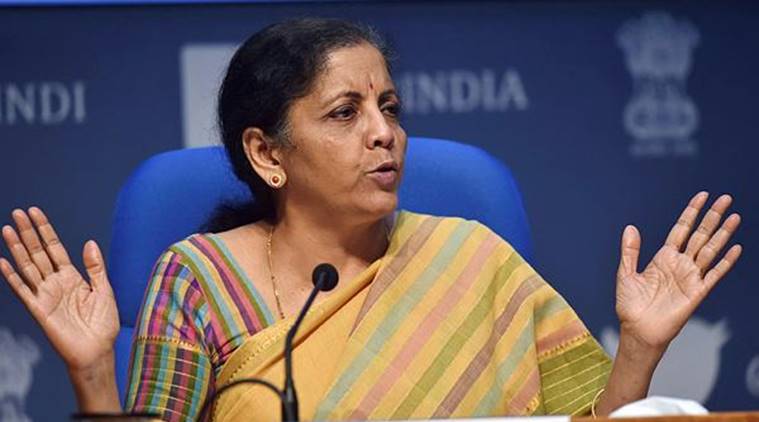For First, Second and Third tranche See: Twenty lakh crores stimulus package – such a big number
The Indian Finance Minister announced the final Fifth tranche of the Atmanirbhar Bharath Abhiyaan Stimulus package on May 17. She has announced many sectoral reforms in her fourth and fifth tranche announcements. Also, she gave the breakup for 20 lakh crores including liquidity, credit guarantee and direct spending. What is the urgency for the sectoral reforms during this pandemic? Does the package is really capable of reviving the economy and helping the situation of distress experienced by the poor, migrant workers etc?
Reforms in the core sectors
FM announced reforms for the 8 core sectors of the economy in the fourth tranche of the financial stimulus package. The core sectors include Atomic energy, space, Defence, Ordinance factories, Power distribution companies, civil aviation, Minerals and Coal. FM announced there will be Public-Private Partnership in Atomic energy, space and civil aviation sectors. PPP in those sectors is welcome as they would narrow the funding gap and benefits the nation.
Atomic energy, space and civil aviation

The irradiation technology for food preservation by PPP will benefit the farmers to store their goods that are perishable. Indian start-ups and entrepreneurs in the Atomic energy sector will be benefited by the tech incubation centres set up through PPP. Space exploration is open to private the burden for the govt. is reduced and it would generate more jobs and the country would achieve the targets soon.
Six more airports are up for auctions by PPP and additional investment by private players to be invited in 12 airports. The PPP in infrastructure development like roadways harbours and airports are good because only through the PPP model (BOOT model) India was able to build the highways efficiently. Also, govt alone will not be able to realise funds for the infrastructure policies in the near future.
Ordnance Factory board

The FM said that the Ordinance Factory board will be corporatized and won't be privatised to improve efficiency, transparency and accountability. Govt should come out of this thought that a PSU will work efficiently only when it is corporatized or privatised. Why cant they ensure the efficient working of the organization through some other mechanisms? FDI limits for defence production through automatic route have been increased from 49% to 74%. This increases the foreign money flowing inside the country and encourages job opportunities. Also allowing FDI in these sectors doesn’t affect a common citizen, unlike commercial manufacture or FMCG. Since the world is already under slowdown and the pandemic accompanied, the developed nations are providing loans with low interest or zero interest rates. So, the investors are searching for developing nations to invest. If we utilize the opportunity properly we could find a solution for our unemployment problems. But the FDI shouldn’t in any way affect our citizens with respect to labour rights and domestic investors.
The defence exports jumped 700% in NDA regime. India's defence exports were INR 4,682 crore (US$0.66 billion) in 2017–2018 and INR10,500 crore (US$1.47 billion) in 2018–2019. The self reliance and trade balance with nations will be improved only when India's exports are increased. The stress given for Make in India for defence sector is not given for the defence exports which would be very profitable. The Indian capitalist regime copying the business models from all over the world differs and fails to copy prime and strategic models.
Atmanirbhar Bharath Abhiyaan
Through Atmanirbhar Bharath Abhiyaan Prime Minister wants India to become self-reliant in a way not isolating foreign countries in trade. This means he insists on a reduction in imports and encouraging domestic product purchase. This is a kind of Swadeshi Movement that has been insisted since the freedom struggle by our leaders. But in this era of Globalization, it is impossible and irrational. India cannot break the FTAs signed between countries to increase the import duty to encourage domestic goods and citizens cannot suddenly become fond of domestic goods. India is not incapable of producing goods that are imported from other countries but they couldn’t compete for the pricing of foreign goods from countries like China. Govt should ensure markets for the Indian goods in India and foreign countries. The efficient way to tackle the Balance of Payment crisis and trade deficit is to increase our exports rather decreasing imports.

Our Prime Minister is very conscious about attracting foreign investment to India but fails to create markets for Indian goods or agreements to encourage domestic investors to invest in foreign countries. In our previous articles, we have been discussing the demand side problems that govt is hesitating to touch. Even now the financial stimulus package is completely dealing with a supply-side hitch and gives financial stimulus to them. But only when the market demand is raised these businesses will take off otherwise the loan advancements will end up as NPAs.
See Also: Ensuring Growth through Reforms
The interest rate cuts and credit guarantee schemes provided by the govt should be more rational. Before announcing the rate cuts govt should analyse the market demands and workout the liquidity plan to MSMEs accordingly. Incentives and loans should be given to limited companies in every sector to ensure the availability of goods and to check overflowing of goods only then markets with good price will be realised. Only when the goods have marketed, the loans could be recovered. Policies and laws must go for parliamentary scrutiny rather voted directly. A lot of statistical data and research must foster the decision-making process. Feedback and data are much needed for the efficient implementation of policies and schemes.
See Also: Will Income tax rate cut increase demand?
Minerals and mines
Govt removes the distinction between the captive and non-captive mines to allow the sale of surplus unused mineral mines. So, coal blocks can also bid by any private companies and they can sell it in open markets. This move increases coal production in the country and reduces the coal imports in India and generates more employment opportunities. But the environment as a concern this will lead to overexploitation of minerals by private unless proper inspection and transparency are ensured.
Healthcare
Prime Minister in his speech stressed about the public spending on healthcare would be increased. He said the govt will work to increase healthcare facilities and wellness centres in rural areas. Each district will have an infectious diseases block. Govt thinking about the wellness centres is commendable but how will the govt ensures the accessibility of medical services by the poor. The Ayushman Bharat scheme provides assistance to the secondary and tertiary medical care but it should also provide primary medical care which will be highly helpful to the poor and increases the purchasing power of the people.

Govt alone cannot provide healthcare to the entire population of the country. So, it can provide assistance through health insurance schemes that pay private hospitals like Ayushman Bharat. Insurance companies are highly profitable, instead of paying a premium for Ayushman Bharat scheme to a private company govt can start its very own health insurance company. The amount remained unclaimed would be used by the govt itself. This may help us to achieve universal healthcare and a welfare state.
Companies Act
In an attempt to give relief to companies defaulting on loans due to the COVID-19 stress, no fresh insolvency will be initiated for one year under the Insolvency and Bankruptcy Code. Coronavirus-related debt will be excluded from the definition of default. The minimum threshold to initiate insolvency proceedings has been raised to ₹1 crore from ₹1 lakh to benefit MSMEs. Decriminalisation of the Companies Act in violations involving minor technical and procedural defaults such as – shortcoming in CSR reporting, filing defaults, delay in holding AGM, etc. Providing relief to the companies isn’t an issue but touching the labour laws is. Labour rights mustn’t be taken and govt should ensure the labours are paid correctly for their work.
Public Sector Undertakings
The most debatable announcement is about the public sectors. Govt announced that it opens all the sectors to private and PSUs in all the sectors will be privatized. Also, it will define strategic sectors in which not more than 4 PSUs will be there. Those strategic sectors are also open to the private. Since during the budget 2020 FM announced there will be disinvestments of PSUs, this is an expected announcement. We have already discussed in BPCL goes out of hand that disinvestment of PSUs that are loss-making is good but why should we sell off a profit-making PSU. PSUs like BPCL, IOC, LIC are highly profit-making and they are financing in the most critical issues like refinancing PSBs etc. The disinvestments will generate lump sum non-tax revenue to realize funds for policies and schemes now but in future, there will be no means to generate non-tax revenue and there will be a situation where citizens are plundered in the name of tax by the govt for its policies.
Think of a situation like a pandemic where only public services and public organisations are working, if all of them are privatized govt will have no means to work for the people and generating revenue. The purpose of the creation of PSUs is for the welfare of the people, to provide job opportunities and provide equal representation of all sections etc. When the PSUs are privatised there will be no caste-based reservations and there will be no transparency in appointments. So some section of the people might go unrepresented. The reflection of the announced financial package in a common man's hand will be realized only after 3 months. We predict here the liquidity in the economy and people's hands will be very less and performance of MSME's will be very low, the market demand and purchasing power of the people will be very less after the 3 month period. Govt. failed to monetize the poor directly and will face the consequences later for announcing a financial stimulus package only for capitalists.

MGNREGS
An additional ₹40,000 crore shall be allocated to MGNREGS in addition to the budget estimate of ₹61,000 crores to ensure that workers returning to villages are provided employment, especially in the upcoming monsoon period. However, the amount sanctioned will not make a huge difference. The migrant workers returned to their home states take at least 3 to 6 months to get back to work. Until then they will be heavily affected by unemployment. There is an argument to incorporate farm and agriculture works to the MGNREGS as there is scarcity for the agriculture labours. The main purpose of the scheme is to provide income security to the poor by providing work for 100 days in a year and this scheme is very much successful in providing minimum income and dignity to the poor. The poor people in the villages were not treated with dignity by the landlords as they depend only on the agriculture work provided by the village landlords and they don't get the proper remuneration for their work before the MGNREGS. If agriculture work is incorporated with the MGNREGS, then the same landlords would dominate the appointment and remuneration for their work. The purpose of the scheme will be diluted. The lack of agriculture labours problem could be solved by an agriculture framework for cooperative farming.
Govt spending must be very productive in the near future in a way it should generate revenue in future. Govt policies must reduce inequalities and shouldn’t increase inequalities. The FM spoke about the contract farming framework, govt wants agriculture also to be incorporate hands. Art 43B of the Indian constitution provides for the formation of cooperative societies, why don’t the govt promotes cooperative farming while there is a successful model of cooperative milk producing company. Privatizing everything under the sun may give money to the govt now but this will end up in the accumulation of wealth in few hands and denial of opportunities for the people. Sticking rigidly to the ideology is not good governance but acting according to the situation and for the common good is.

[…] Also read: Financial Stimulus Package – for Capitalists […]
ReplyDeleteYour amazing insightful information entails much to me and especially to my peers. Thanks a ton; from all of us. how long does it take to get a package from china to canada
ReplyDelete